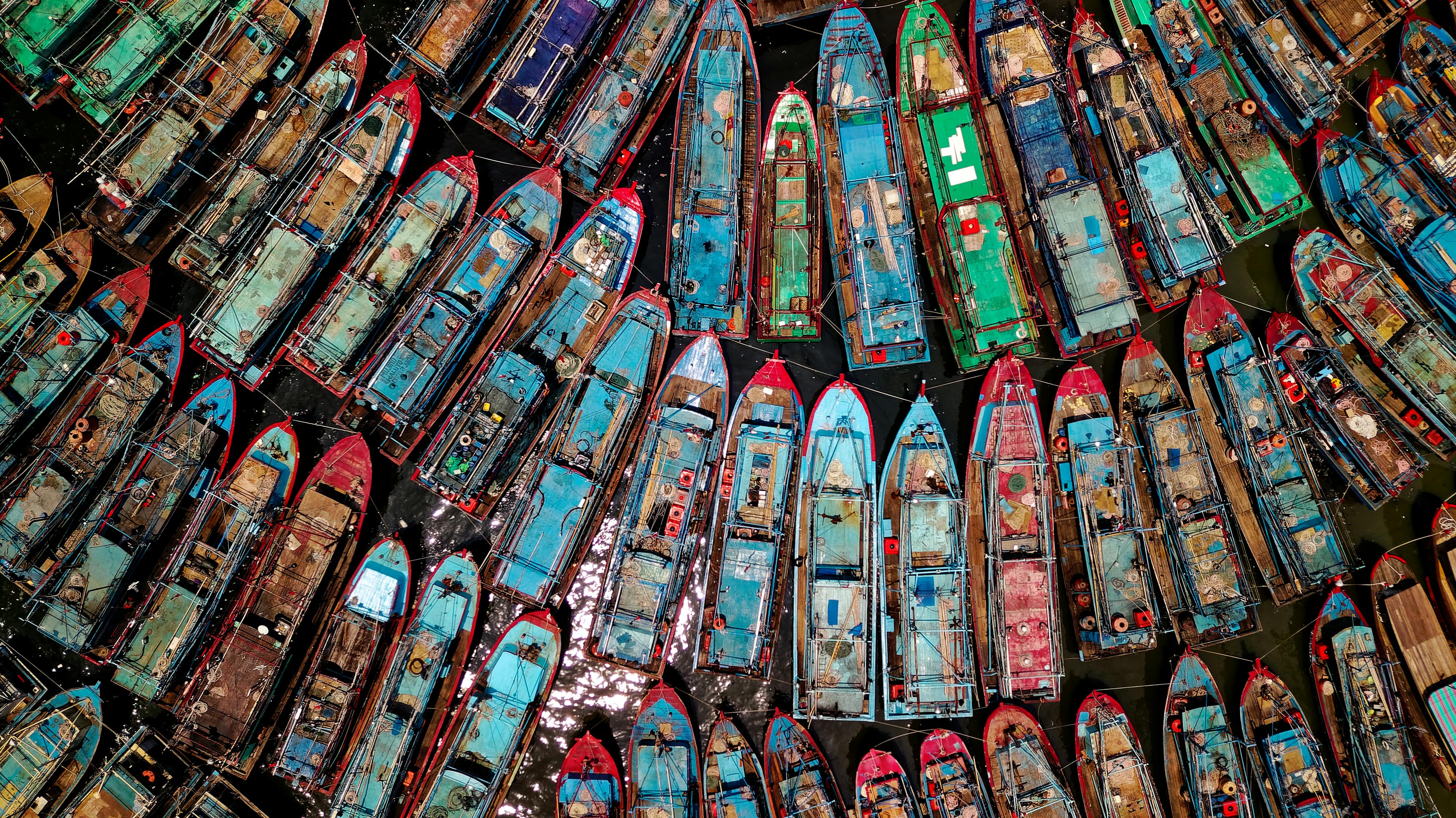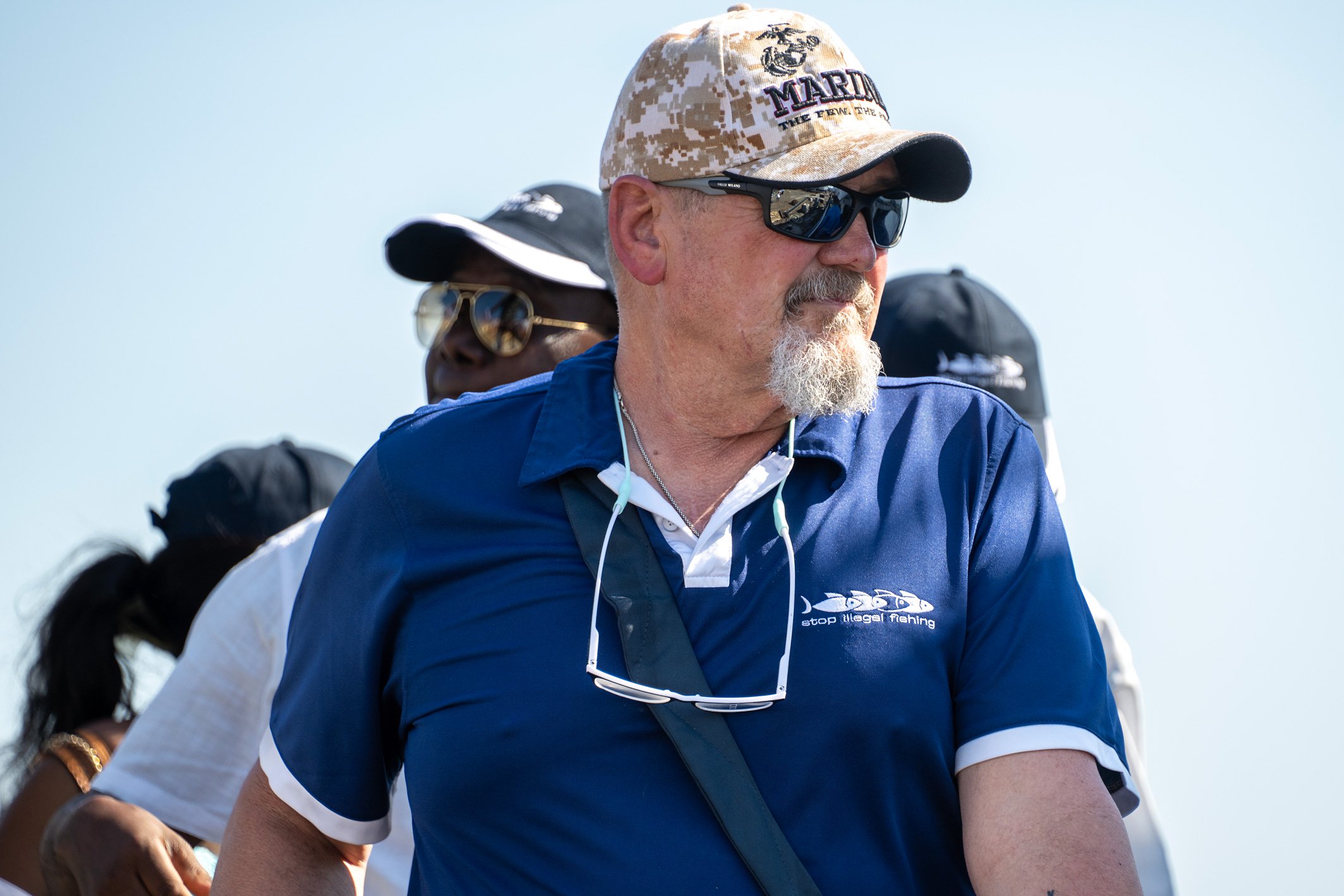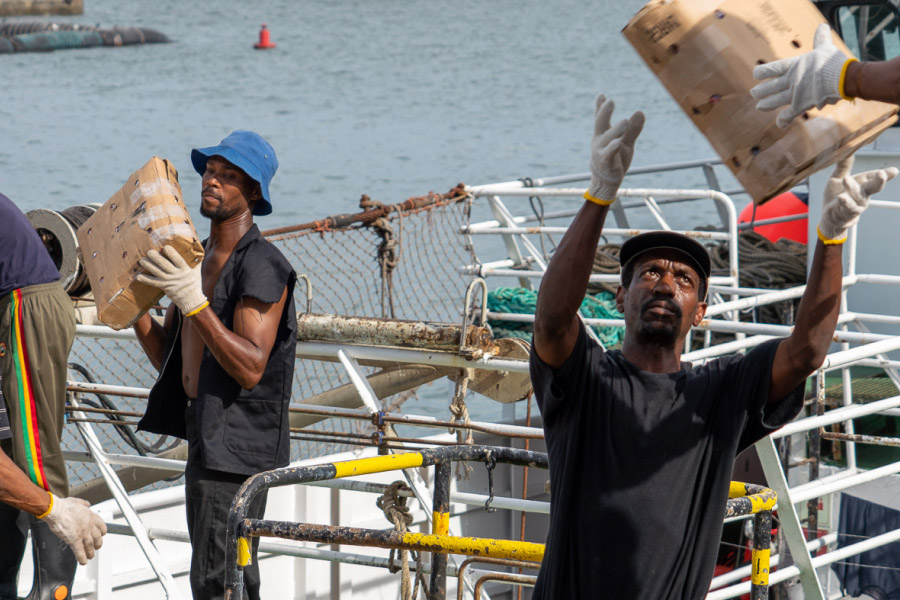Specialized Night Vision equipment provided to South Africa – part of the SADC MCSCC commitment to protect our fisheries
September 13 2023
On the 12 September 2023, the Southern African Development Community (SADC) Fisheries Monitoring Control and Surveillance Coordination Centre (MCSCC) and Stop Illegal Fishing handed over Night Vision equipment to the Department of Forestry, Fisheries and the Environment, South Africa to be used during monitoring, control and surveillance (MCS) operations. Cape Town’s MCS officers add another string to their bow to promote compliance with fisheries regulations in South Africa. Compliance with these regulations is important for the nation and especially to achieve South Africa’s vision of a wider ocean economy, noting that the sector provides direct and indirect jobs to 60,000 people and is the largest fish trading nation in the SADC region, together with Namibia.
JD Kotze from Stop Illegal Fishing was pleased to hand over the equipment on behalf of the MCSCC’s SADC Atlantic Project to Fatima Savell, Acting Director of Compliance. Mr Kotze noted that “The South African MCS Officers are working under challenging conditions, they have three designated ports for foreign fishing vessels Cape Town, Durban and Port Elizabeth and 661 industrial fishing vessels, 554 semi-industrial fishing vessels and 1,322 artisanal fishing vessels operating in their waters. Therefore, on behalf of the SADC Atlantic project partners we are delighted to support them by making this specialist Night Vision equipment available and to assist with training in risk assessment and monitoring for illegal activities within the fisheries sector”.
Ms Savel thanked the MCSCC, SIF and the project partners on behalf of the Department for the equipment and ensured that it will be a useful addition to their operations.
SADC prioritizes fighting illegal, unreported and unregulated (IUU) fishing to protect the region’s people, oceans and economy from the devastating impacts of illegal fishing. The SADC is coordinating and driving regional MCS collaboration through their MCSCC and one of the Centre’s projects is SADC Atlantic. The project focuses on Angola, Namibia and South Africa, these three countries are cooperating to promote a coordinated regional approach to the long-term conservation, protection, rehabilitation, enhancement and sustainable use of the shared resources through the implementation of the 2013 Benguela Current Convention. The project is supported by the United States Department of State through the United States Embassy in Gaborone, in partnership with the SADC Secretariat and Stop Illegal Fishing.


